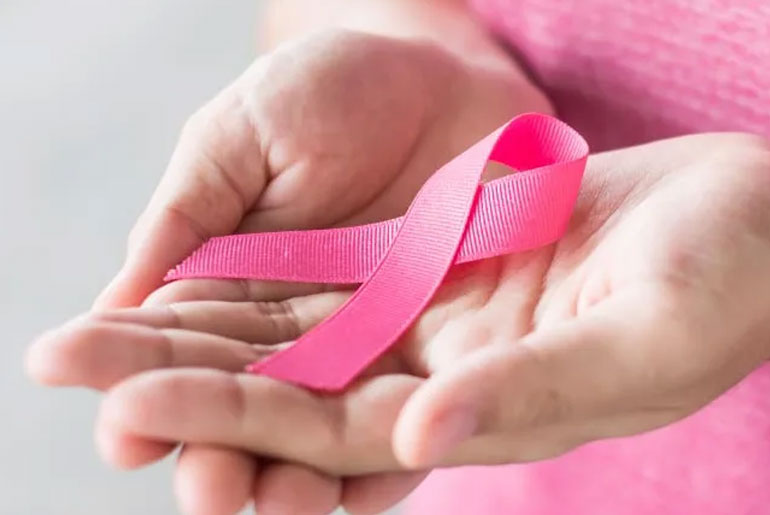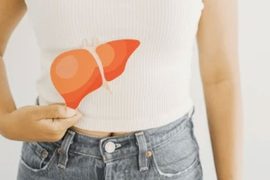Breast Cancer Awareness Month (BCAM), observed every October, is a global campaign led by major charities to raise awareness about breast cancer and fund research into its causes, prevention, and treatment. In India, breast cancer is one of the most prevalent cancers among women, with increasing cases due to urbanization and lifestyle changes. Unfortunately, many Indian women are diagnosed at advanced stages, largely due to lack of awareness, healthcare access, and the stigma surrounding breast cancer. This often leads to worse outcomes compared to Western countries. Empowering women with knowledge and promoting early detection is vital in improving breast cancer outcomes in India.
The Role of Lifestyle in Reducing Breast Cancer Risk
Lifestyle changes can significantly reduce breast cancer risk. A balanced diet rich in fruits, vegetables, whole grains, and lean proteins is essential in lowering cancer risk. Avoiding processed foods, red meats, and high-sugar diets, which are linked to cancer, is also important. Regular physical activity, such as brisk walking, yoga, and traditional dance, can help maintain a healthy weight—a key factor in reducing breast cancer risk, particularly in India where these activities fit naturally into daily life.
Impact of Alcohol, Tobacco, and Obesity on Breast Cancer Risk
Alcohol consumption, even in moderate amounts, is a recognized risk factor for breast cancer. With increasing alcohol use among women due to urbanization in India, advocating for limited or no alcohol intake is critical. Tobacco use, including smokeless forms, further elevates the risk of cancer. Obesity, especially abdominal obesity, is strongly associated with postmenopausal breast cancer, as excess fat tissue increases estrogen levels. Therefore, managing weight through a healthy diet and regular exercise is essential in reducing cancer risk.
The Importance of Early Detection and Screenings
Early detection through regular screenings is key to improving breast cancer outcomes. Women over the age of 35, as well as those with a family history of breast cancer, undergo routine mammograms and clinical breast exams. Increasing access to screening programs, such as those promoted by India’s National Cancer Control Program, can significantly improve early detection rates. For high-risk individuals, genetic counseling can guide preventive measures and strategies.
Combining Genetics and Lifestyle for Better Outcomes
While genetic factors can contribute to breast cancer risk, lifestyle changes offer a powerful way to mitigate this risk. These changes should be tailored to Indian cultural norms and realities, ensuring they are practical and widely adopted. By adopting a holistic approach that includes a healthy diet, regular exercise, weight management, and routine screenings, significant progress can be made in reducing breast cancer incidence and improving women’s health outcomes across India.
Important Signs of Breast Cancer
- Painless Lump in the Breast or Armpit: One of the most common early signs of breast cancer is the appearance of a lump, which may feel hard and painless. It can occur in the breast or armpit area and should not be ignored.
- Change in Breast Size: Any noticeable changes in breast size, especially if one breast becomes larger or swollen, could indicate an underlying issue, potentially breast cancer.
- Bloody Nipple Discharge: Discharge from the nipple, particularly if it is bloody, can be a warning sign of breast cancer and requires immediate medical attention.
- Thickened, Hard Skin Resembling an Orange Peel: The skin on the breast may become thickened, hard, or take on the appearance of an orange peel, indicating inflammatory breast cancer.
- Nipple Retraction: If the nipple becomes inverted or pulled inward, it can signal changes in the breast tissue due to breast cancer.
Healthy Lifestyle Habits to Reduce Breast Cancer Risk
- Healthy Weight Maintenance: Maintaining a healthy weight is crucial, particularly after menopause, as obesity increases the risk of breast cancer. Fat tissues produce estrogen, which can promote certain types of breast cancer.
- Regular Physical Activity: Engaging in moderate physical activity, like brisk walking for at least 30 minutes daily, can regulate hormones, maintain a healthy weight, and boost the immune system, lowering breast cancer risk.
- Healthy Diet: A diet rich in fruits, vegetables, whole grains, and lean proteins, while limiting processed foods and red meat, helps lower the risk of breast cancer. Consuming a rainbow diet daily ensures a variety of nutrients.
- Limiting Alcohol Consumption: Alcohol is a known risk factor for breast cancer. Avoiding alcohol or limiting consumption to one drink or less per day is advisable.
- Avoiding Tobacco: Smoking, both active and passive, is linked to an increased risk of many cancers, including breast cancer. Avoiding all forms of tobacco is essential for cancer prevention.
- Breastfeeding: Women who breastfeed for 12 months or more may have a slightly reduced risk of breast cancer, as breastfeeding lowers hormone levels associated with cancer risk.
- Hormonal Factors: Prolonged use of hormone replacement therapy (HRT) after menopause can increase breast cancer risk. Women should consult their doctors to weigh the risks and benefits of HRT.
- Regular Screenings and Self-Examinations: While lifestyle changes can lower the risk, early detection is key. Regular screenings like mammograms and self-examinations help identify breast cancer early when it is most treatable.
Disclaimer:
The information contained in this article is for educational and informational purposes only and is not intended as a health advice. We would ask you to consult a qualified professional or medical expert to gain additional knowledge before you choose to consume any product or perform any exercise.







